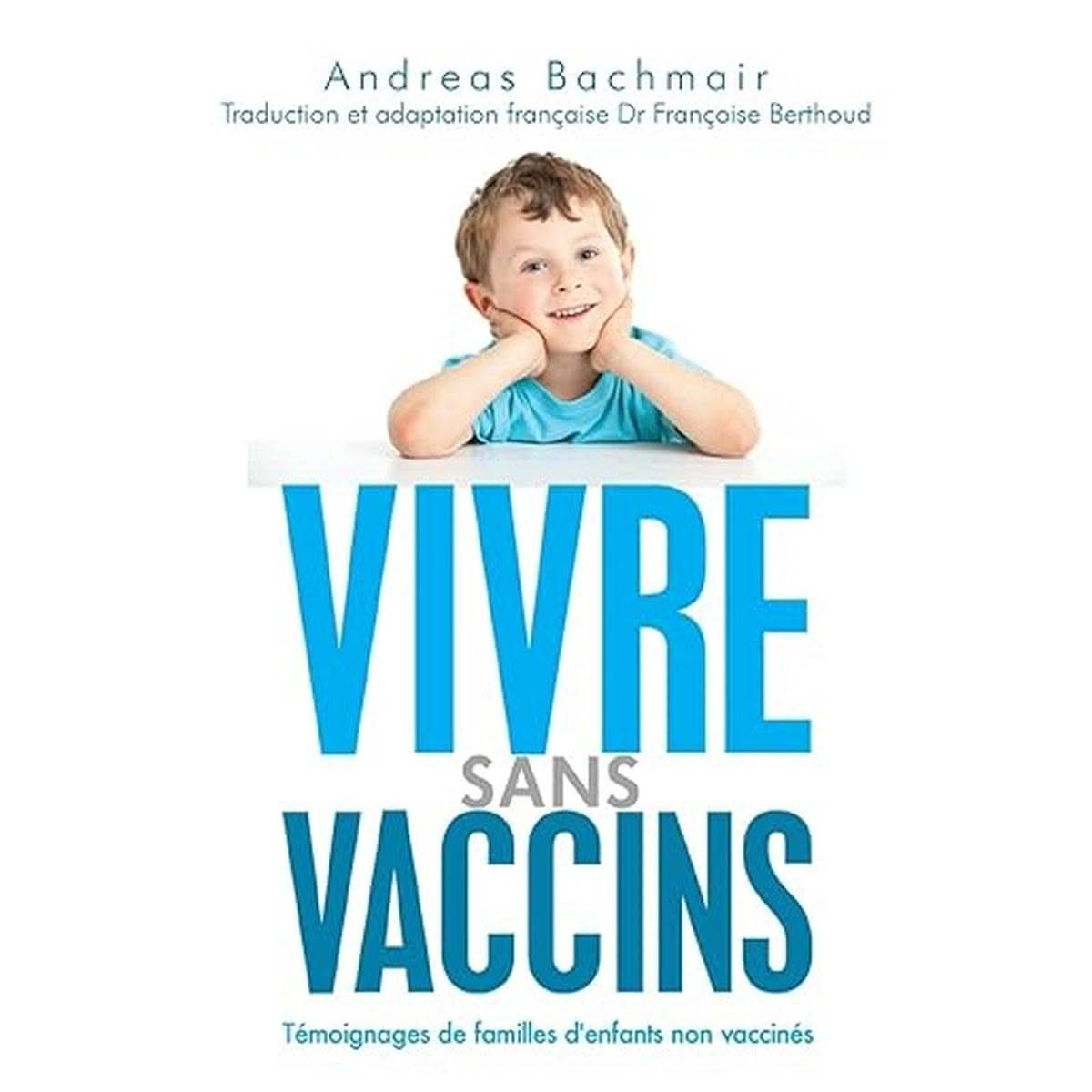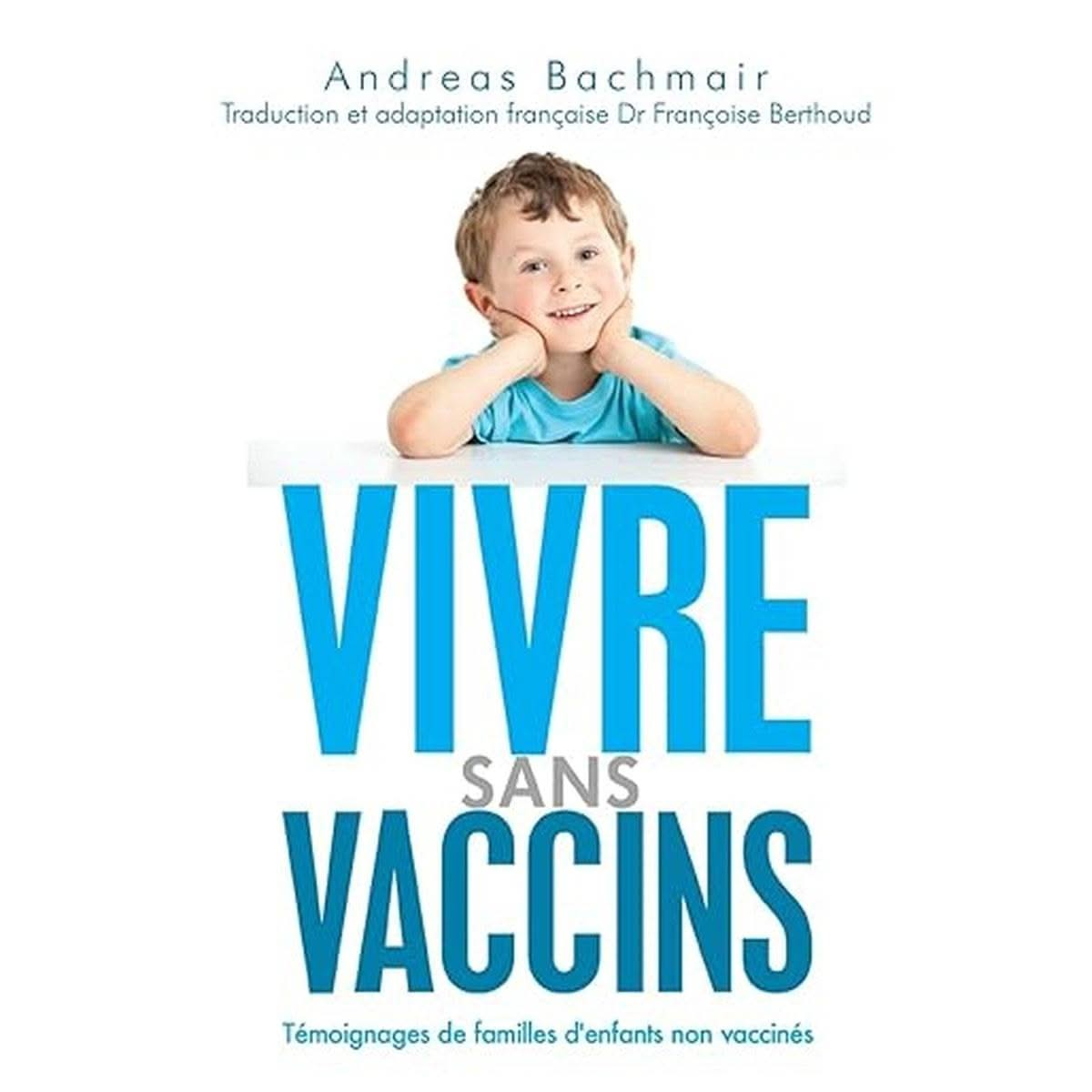1
/
of
1
Living Without Vaccines: Stories from Families of Unvaccinated Children
Living Without Vaccines: Stories from Families of Unvaccinated Children
1 en stock
Regular price
$9.00 USD
Regular price
$12.00 USD
Sale price
$9.00 USD
Unit price
/
per
Tax included.
Shipping calculated at checkout.
Couldn't load pickup availability
Used book in very good condition
This book is a collection of good news: there are hundreds, thousands of families all around the world who think about the merits of vaccinating ... and decide that no, that they will choose other means to preserve the health of their children and allow their immune defense system to build itself naturally. The second good news is that these children are well, very well even. Far from the allergies and learning problems that their vaccinated friends suffer from, they are rarely sick and recover very quickly. Their stories repeat themselves like a happy refrain, and each one adds a little original and interesting personal note. To continue with the good news, most of them find therapists, doctors or not, who follow them in their health approach, including home births, healthy eating, respect for illnesses and fevers and manual techniques.
Although there are unfortunately still vaccination requirements in several European countries, this book will give courage to parents who are still hesitant to vaccinate, fearful of the judgments of their family or society and often influenced and frightened by the strong opinions of the majority of doctors on this taboo subject: doubts about the effectiveness and especially the absence of dangers of vaccines. This book is a French translation of Vaccine Free - 111 stories of unvaccinated children and also contains testimonies from French-speaking countries.
Preface
In the distant past, Saint Sebastian was invoked to be protected from infectious diseases. The symbol has remained. As soon as the newborn has arrived in this world, he finds himself, like Saint Sebastian, the target of poisoned arrows, these syringes with fearsome contents. A visit to the pediatrician is inconceivable without addressing the subject of vaccinations supposed to provide protection to this little being that we believe to be exposed to all dangers. However, nature is well made: while waiting for the infant to be able to defend itself, its mother's milk provides it, in addition to food, with the protective elements it needs (antibodies in particular), thus supplementing its still fragile and incomplete defenses. Paradoxically, vaccination, supposed to be an aid, stimulates defenses not yet in place and will disrupt a fragile balance and counter the benefits of breastfeeding. In addition, it risks establishing a state of tolerance that will make the child incapable of reacting properly later against the microbes from which it was intended to protect it by vaccination. This book recounts testimonies illustrating the diversity of vaccination practices and requirements depending on the country. Being born under a lucky star can also change the fate of the child: thus, being born in France exposed the infant, until recently, to receiving the BCG later, which has never been the case in the United States or Holland. On the other hand, unfortunately, newborns in several countries receive the hepatitis B vaccine from the first hours of life.
To convince a mother of the danger she is putting her child in by not vaccinating him, you just have to play on two tables, fear and guilt: "hospitals are full of sick children who have not been vaccinated. If your child gets sick, it will be YOUR fault". You have to keep a level head. If the material living conditions are correct (healthy food, good hygiene of life), there is nothing to fear. The common sense of the parents will ensure the best protection, as shown by the testimonies collected in this book and as confirmed by the experience of its translator Françoise Berthoud.
Michel GEORGET, associate professor of Biology, honorary professor of preparatory classes for the French Grandes Écoles Biologies, author of the book "Vaccinations, the unwanted truths" (Editions Dangles, reprinted 2012)
Although there are unfortunately still vaccination requirements in several European countries, this book will give courage to parents who are still hesitant to vaccinate, fearful of the judgments of their family or society and often influenced and frightened by the strong opinions of the majority of doctors on this taboo subject: doubts about the effectiveness and especially the absence of dangers of vaccines. This book is a French translation of Vaccine Free - 111 stories of unvaccinated children and also contains testimonies from French-speaking countries.
Preface
In the distant past, Saint Sebastian was invoked to be protected from infectious diseases. The symbol has remained. As soon as the newborn has arrived in this world, he finds himself, like Saint Sebastian, the target of poisoned arrows, these syringes with fearsome contents. A visit to the pediatrician is inconceivable without addressing the subject of vaccinations supposed to provide protection to this little being that we believe to be exposed to all dangers. However, nature is well made: while waiting for the infant to be able to defend itself, its mother's milk provides it, in addition to food, with the protective elements it needs (antibodies in particular), thus supplementing its still fragile and incomplete defenses. Paradoxically, vaccination, supposed to be an aid, stimulates defenses not yet in place and will disrupt a fragile balance and counter the benefits of breastfeeding. In addition, it risks establishing a state of tolerance that will make the child incapable of reacting properly later against the microbes from which it was intended to protect it by vaccination. This book recounts testimonies illustrating the diversity of vaccination practices and requirements depending on the country. Being born under a lucky star can also change the fate of the child: thus, being born in France exposed the infant, until recently, to receiving the BCG later, which has never been the case in the United States or Holland. On the other hand, unfortunately, newborns in several countries receive the hepatitis B vaccine from the first hours of life.
To convince a mother of the danger she is putting her child in by not vaccinating him, you just have to play on two tables, fear and guilt: "hospitals are full of sick children who have not been vaccinated. If your child gets sick, it will be YOUR fault". You have to keep a level head. If the material living conditions are correct (healthy food, good hygiene of life), there is nothing to fear. The common sense of the parents will ensure the best protection, as shown by the testimonies collected in this book and as confirmed by the experience of its translator Françoise Berthoud.
Michel GEORGET, associate professor of Biology, honorary professor of preparatory classes for the French Grandes Écoles Biologies, author of the book "Vaccinations, the unwanted truths" (Editions Dangles, reprinted 2012)
Tags :
Anti-vaccine book
ANDREAS BACHMAIR
ANDREAS BACHMAIR
Anti-vaccine book
Anti-vaccine book
ANDREAS BACHMAIR
ANDREAS BACHMAIR
Product Reviews
Product Reviews
Shipping and Return
Shipping and Return



